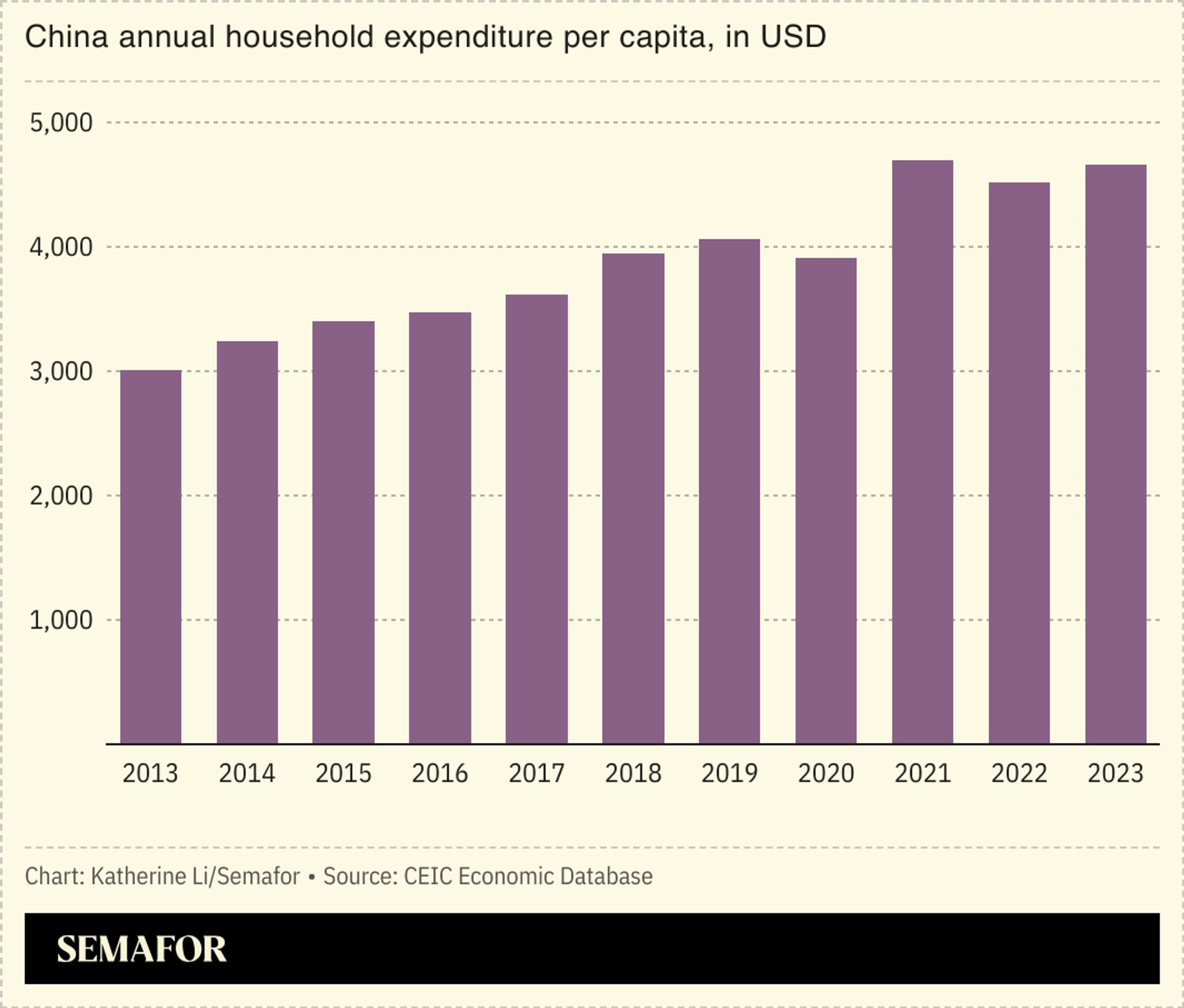The News
China announced a huge $42 billion stimulus package designed to end a period of weak consumer spending post-pandemic and boost its lagging economic growth.
In a document released Saturday, the government lays out a plan to overhaul tourism, boost childcare and health services, and create low carbon “smart cities” to help juice spending. The government will also spend billions to finance a mass equipment and appliance trade-in scheme to bolster manufacturing.
China’s Politburo said the policies will increase ordinary people’s disposable income “through multiple channels,” and enhance the “ability and willingness” to spend.

SIGNALS
China is feeling the effects of international pressure
Economist Paul Krugman told Bloomberg that China’s leaders have seemed “bizarrely unwilling” to use government money to boost consumer demand to meet high production, describing the policy’s global fallout as “a threat to us all.” Janet Yellen has similarly warned China can’t export its way to growth. At the same time, there is increased push-back from lawmakers in the US and Europe over cheap Chinese goods flooding the market. Yue Su, principal China economist at the Economist Intelligence Unit, said “the urgency to stimulate the domestic economy is highlighted by increased external pressures, including the potential return of Trump.” Economists estimate that a 10% increase in US import tariffs could cut China’s real economic growth by at least 0.3 percent next year.
Driving consumption up will be challenging
China’s policies have favored businesses and manufacturers at the expense of households, analysts at Carnegie China wrote, making ordinary people’s spending a much smaller percentage of China’s GDP compared to most countries and creating an overreliance on foreign investment and trade. Some experts say it could take more than $400 billion just to get consumer spending back to a point where growth may be at pre-pandemic levels. Lockdowns and high youth unemployment has made “revenge saving” a trend. One Chinese markets expert told CNBC that “confidence and Animal Spirits have disappeared among the youth,” adding it could “take years if not longer” for them to feel comfortable with spending again.

